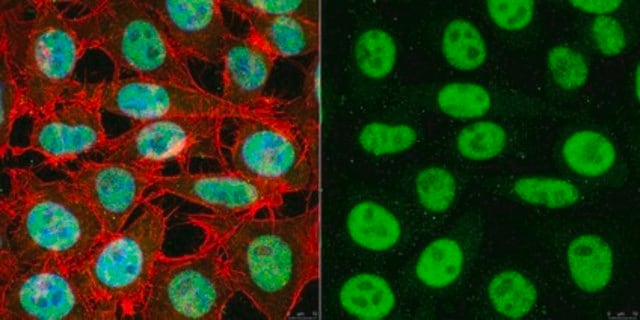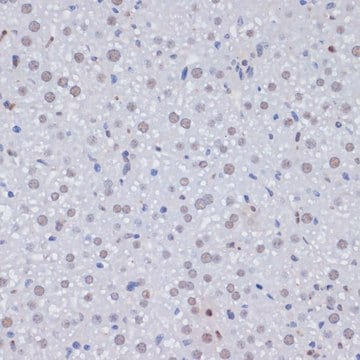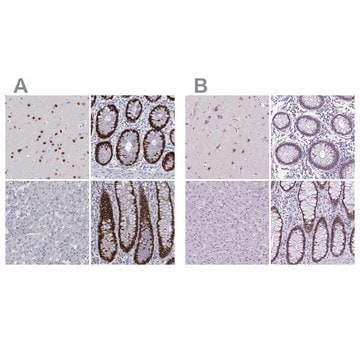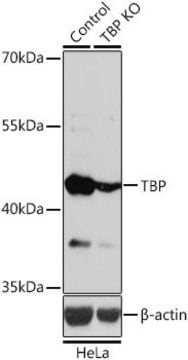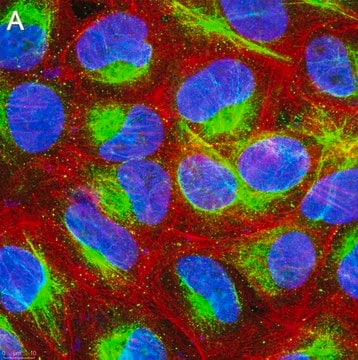T1827
Monoclonal Anti-TBP antibody produced in mouse
clone 58C9, purified from hybridoma cell culture
Synonyme(s) :
Anti-GTF2D, Anti-GTF2DI, Anti-SCA17, Anti-TATA box binding protein, Anti-TFIID
About This Item
Produits recommandés
Source biologique
mouse
Conjugué
unconjugated
Forme d'anticorps
purified from hybridoma cell culture
Type de produit anticorps
primary antibodies
Clone
58C9
Poids mol.
antigen ~42 kDa
Espèces réactives
Sf9 cell line, human, yeast, Drosophila melanogaster
Technique(s)
immunoprecipitation (IP): suitable
western blot: 1-2 μg/mL using nuclear extracts of D.Mel cells
Isotype
IgG2b
Numéro d'accès UniProt
Conditions d'expédition
dry ice
Température de stockage
−20°C
Modification post-traductionnelle de la cible
unmodified
Informations sur le gène
Drosophila melanogaster ... Tbp(37476)
human ... TBP(6908)
Catégories apparentées
Description générale
Immunogène
Application
- immunoblotting
- co-immunoprecipitation
- immunohistochemistry
Actions biochimiques/physiologiques
Description de la cible
Forme physique
Clause de non-responsabilité
Vous ne trouvez pas le bon produit ?
Essayez notre Outil de sélection de produits.
En option
Code de la classe de stockage
12 - Non Combustible Liquids
Classe de danger pour l'eau (WGK)
nwg
Point d'éclair (°F)
Not applicable
Point d'éclair (°C)
Not applicable
Équipement de protection individuelle
Eyeshields, Gloves, multi-purpose combination respirator cartridge (US)
Certificats d'analyse (COA)
Recherchez un Certificats d'analyse (COA) en saisissant le numéro de lot du produit. Les numéros de lot figurent sur l'étiquette du produit après les mots "Lot" ou "Batch".
Déjà en possession de ce produit ?
Retrouvez la documentation relative aux produits que vous avez récemment achetés dans la Bibliothèque de documents.
Notre équipe de scientifiques dispose d'une expérience dans tous les secteurs de la recherche, notamment en sciences de la vie, science des matériaux, synthèse chimique, chromatographie, analyse et dans de nombreux autres domaines..
Contacter notre Service technique